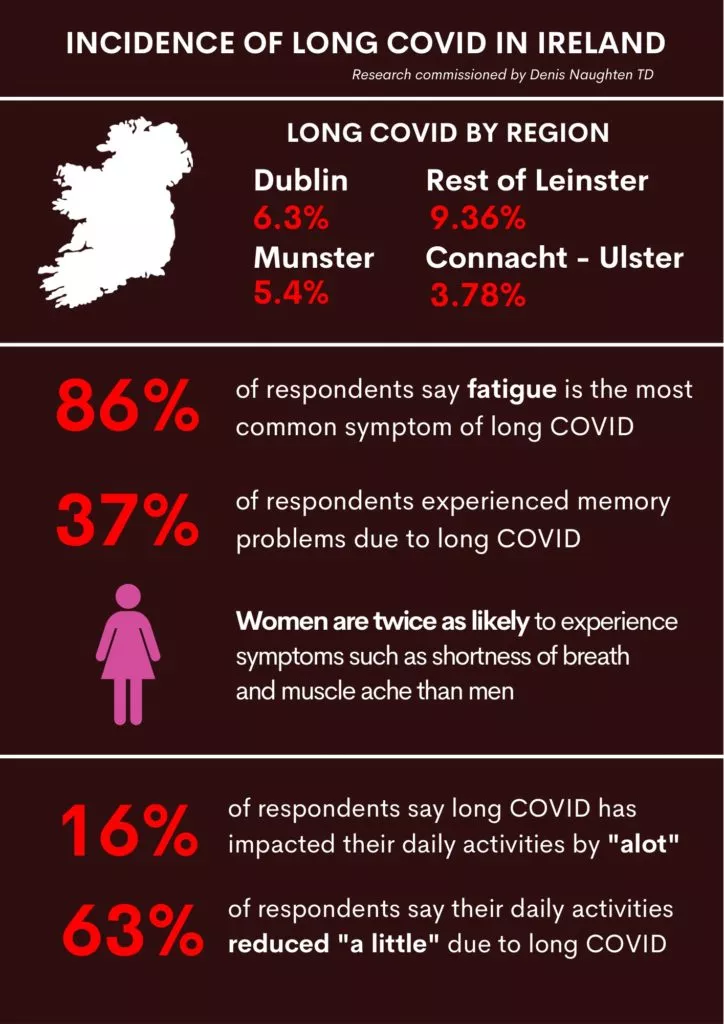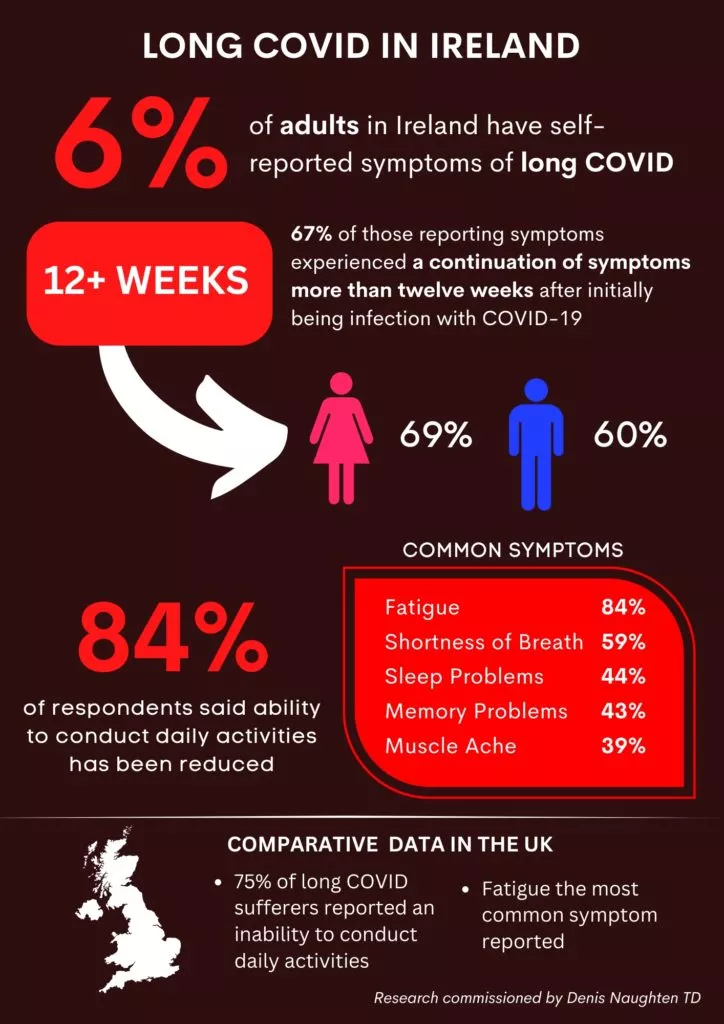The incidence rate of long Covid in Dublin and the rest of Leinster is significantly higher than the rest of the country based on a survey carried out by Ireland Thinks, that was commissioned by Independent TD Denis Naughten.
The survey shows that the self-declared incidence rate of long Covid in Dublin was 6.3 per cent and the rest of Leinster was 9.36 per cent, higher than that Connacht/Ulster at 3.78 per cent and Munster at 5.4 per cent.
The results correlate with the demand facing long Covid clinics in the Dublin region, where there is a waiting time of 42 weeks to access specialists at St Vincent’s Hospital, with patients referred to Tallaght waiting 26 weeks, followed by Cork University Hospital at 20 weeks and Galway University Hospital at 16 weeks.

“It’s important to note that referrals to these clinics only take place when the symptoms associated with long Covid such as fatigue and memory problems persist for at least 12 weeks and GPs have excluded all other potential causes of such symptoms,” said Mr Naughten.
“In practical terms this means that patients can wait for over a year to see a specialist at one of the long Covid centres being established across the country, with a particular problem in the Dublin region which along with the rest of Leinster has the highest self-declared rate of long Covid.”
This is the first exploratory survey of its kind to be conducted in Ireland, and offers a stark perspective on the community prevalence of long Covid, which does not currently have a defined treatment pathway.
Mr Naughten recently called for long Covid to be recognised as an occupational hazard for frontline workers, and urged the Government to treat patients presenting with ongoing symptoms with the same urgency as the initial wave of infections.
The polling data shows that:
- Six per cent of adults in Ireland have self-reported symptoms of long Covid in excess of 12 weeks, with a further 3 per cent of adults self-reporting the onset of symptoms for less than 12 weeks.
- Long Covid symptoms impact a lot on daily activities of 16 per cent of people with long Covid, with a further 63 per cent stating that the symptoms are having some impact on their daily lives.
- While fatigue (86 per cent) is the most common symptom of long Covid, with memory problems at 37 per cent of those with symptoms the survey also indicates that women are twice as likely to have symptoms such as shortness or breath and muscle ache than men.
A similar study, which extended beyond the adult population to include children, was published recently by the Office for National Statistics in the UK and this analysis finds that 2.2 million people are living with self-reported long Covid symptoms in the UK.

Commenting on the research, Mr Naughten said: “The findings released from the first comprehensive survey on the prevalence of long Covid in Ireland, show the need to urgently address the care requirements of those who are suffering with this illness.
"While the mechanism behind the disease has yet to be fully defined, given the proportion of the population in Ireland living with long Covid, it is imperative that evidence-based treatment pathways be explored as a priority.
“We need to take a full-scale approach to treating long Covid – multidisciplinary clinics with involvement from respiratory specialists, infectious disease physicians, neurologists, cardiologists and psychologists who can provide patients with a comprehensive assessment and a holistic treatment plan."







